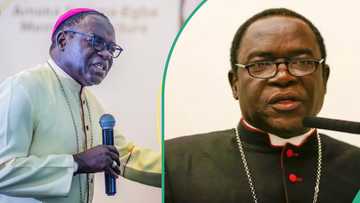Five Top Countries That Changed Their Names and Why They Did
- Türkiye’s 2022 name change aimed to reflect national culture and distance itself from the English word “turkey”
- North Macedonia’s renaming in 2019 ended decades of dispute with Greece and opened the door to NATO and EU membership
- Eswatini, Czechia, and Cabo Verde also changed their official names to restore cultural heritage and simplify global recognition
Several nations across the world have in recent years changed their official names to better reflect their cultural identity, history, and political realities.
From Africa to Europe, these name changes often carry deep national significance and are part of broader efforts to redefine how countries are represented globally.

Source: Getty Images
1. Türkiye adopts new global identity
Türkiye officially replaced the English name “Turkey” in 2022 after President Recep Tayyip Erdoğan’s government launched a rebranding campaign aimed at promoting national heritage and identity, Vanguard reported.
The new name, “Türkiye,” better represents how the country is referred to in Turkish and eliminates the association with the English bird “turkey.”
The United Nations approved the change following a formal request by Ankara, making it the official name in all international communications.
2. North Macedonia resolves long-standing dispute
The Republic of North Macedonia made its own adjustment in 2019 after years of diplomatic friction with Greece.
The previous name “Republic of Macedonia” was opposed by Athens, which argued that it implied territorial claims over the Greek region of Macedonia.
The change to “Republic of North Macedonia” settled the dispute, paving the way for the Balkan nation to join NATO and move closer to European Union integration.
3. Eswatini restores pre-colonial heritage
In 2018, King Mswati III of the former Swaziland announced that the country would be known as the “Kingdom of Eswatini.”
The name means “land of the Swazis” in the local language and marked the 50th anniversary of independence.

Source: Getty Images
The king explained that the decision was aimed at reclaiming the nation’s pre-colonial identity and ending confusion with Switzerland, which was a recurring issue in international forums.
4. Czechia simplifies its global presence
The Central European nation formerly known as the Czech Republic approved “Czechia” as its short name in 2016.
The move was designed to create a more convenient and unified national identity for use in sports, business, and global branding.
While “Czech Republic” remains valid in formal situations, “Czechia” is now preferred for everyday references internationally.
5. Cabo Verde preserves Portuguese heritage
The West African island nation of Cape Verde formally changed its name to “Cabo Verde” in 2013. Officials said the update was necessary to align with the country’s Portuguese roots and ensure consistency in global references.
The United Nations adopted the new name across all languages after a request from the government.
The shift reflects the nation’s desire to maintain cultural unity and authenticity in international representation.
10 countries with highest population size
Earlier, Legit.ng reported that the global population continues to grow, with some countries accounting for a significant share of the total.
Based on 2025 estimates by the United Nations Population Division, there are ten countries known to be the most populous in the world.

Read also
Retired oil workers hail NUPRC’s bold reforms, $18bn investments under Komolafe’s leadership
Their demographic trends not only shape their economies and politics but also impact global development and sustainability efforts.
Proofreading by James Ojo, copy editor at Legit.ng.
Source: Legit.ng




